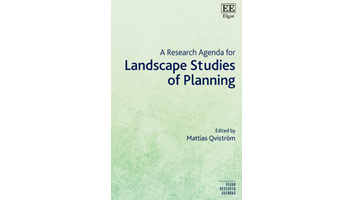Research news
Here we present news items about SLU's research.

När havet blir brunare – forskare från SLU ska undersöka hur varmare och mörkare vatten påverkar ekosystemtjänster längs Östersjökusten
How is marine life affected when coastal waters become both browner and warmer? That’s what SLU researcher Magnus Huss, together with colleagues from the Department of Aquatic Resources (SLU Aqua)

Sloping
Farming on sloping lands supports around a billion people, but conventional methods often cause soil erosion and degradation. A new doctoral thesis from the Swedish University of Agricultural

Adding Water to mires Doesn’t Always Boost Carbon Uptake
Adding water to mires does not always boost carbon uptake. New SLU research shows that mineral-rich water can reduce a mire’s ability to store carbon—challenging assumptions about wetland restoration

Ny teknik avslöjar att sillgrisslor föredrar förutsägbara fiskevatten
Common guillemots tend to seek out areas where the availability of fish is stable, even if the amount is small – a strategy that may leave them vulnerable as marine environments change. Using sailing

Climate changes threatens Lake Mälaren's ecosystem
Lake Mälaren’s environmental condition continues to concern researchers. The Focus on Mälaren 2024 report shows that the lake’s surface water temperature continues to increase, which makes it harder

New book explores the interface between landscape and planning
From floods in New Orleans to forest fires in Västmanland. In a new book, researchers from a range of disciplines come together to examine how contemporary social and environmental changes are

Veterinary seminar
During a seminar at the National Institute of Veterinary Research (NIVR) in Vietnam in April, SLU researchers Sandra Nohrborg and Ulf Magnusson from the Department of Clinical Sciences, presented

Focusing on the root causes of pollinator decline
Europe’s bees, hoverflies and butterflies are under threat – not only from pesticides and habitat loss, but also from deeper, systemic issues such as reluctance to change, silo-thinking and limited

Wood ash doubles poplar growth on productive forest land
There is potential in using forested land and forested arable land for poplar plantations in Sweden, without competing with food and feed production. A new study by PhD student Luca Muraro and his

Algernas färger visar vägen till smartare vattenbruk
Inspired by nature's own warning systems, researchers at the Swedish University of Agricultural Sciences (SLU) and the Royal Institute of Technology (KTH) are investigating whether the colours of

Curiosity and the ongoing sense of discovery drive their motivation
The decision has not yet been made, but the final requirement has been fulfilled: the two UPSC group leaders, Peter Kindgren and Peter Marhavý, have delivered their docent lectures this week. The

Soil microbes shape the future of crop breeding
A better understanding of the plant-microbe partnerships can lead to more resilient and sustainable agriculture. When breeding crops it is now time to consider both the plant and its microbial